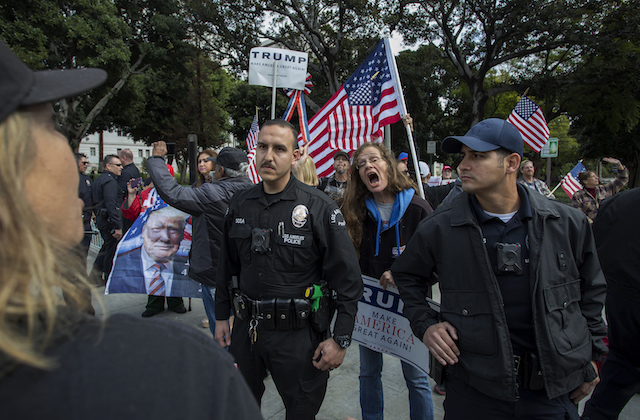The new year heralds a newfound sense of hope for California’s estimated 2.6 million immigrants with undocumented status, as the state begins to enforce its "sanctuary" law in response to President Donald Trump’s immigration crackdown.
The California Values Act, or SB54, requires that federal immigration officials provide a warrant to access workplaces and employee records. Furthermore, local police officials can no longer participate in federal immigration raids or ask state residents about their immigration status. And landlords are barred from revealing tenants’ immigration status.
State senate leader Kevin De León, who introduced the measure, touched on the economic contributions of undocumented immigrants in an op-ed published today (January 2) in The Mercury News:
In California, 1 in 10 workers is undocumented, approximately 3 million in all. They pay an estimated $3 billion in state and local taxes. They contribute $180 billion annually to our GDP. To attack them, as the president has, is to attack our economic prosperity. The California Values Act is our statement to the White House and the rest of the nation: We won’t go down that racist rabbit hole with you. California lost its way in 1994 with Prop. 187, but that tragic episode gave birth to a new California consciousness—one that will now do everything within its power to protect our diversity and the economic power it has created.
SB54 cannot keep the Department of Homeland Security or Immigration and Customs Enforcement from enforcing federal immigration laws, but it does keep state officials from supporting that enforcement.
The law, for example, bars state jail officials from contracting with the federal government to house detainees, and local law enforcement is prohibited from turning immigrants over to federal authorities without a warrant. University officials are also barred from cooperating with the federal government.
The law comes amid overwhelming public support for measures that shield immigrants from deportation. A November 2017 USC Dornsife/Los Angeles Times poll found that 53 percent of the 1,504 eligible voters surveyed favored the sanctuary legislation, while 29 percent of them voiced opposition to the law.
In early December, Trump used his weekly address to single out sanctuary cities that attempt to shield immigrants from deportation. “Our cities should be sanctuaries for Americans, not for criminal aliens,” he said via Twitter:
No American should be separated from their loved ones because of preventable crime committed by those illegally in our country. Our cities should be Sanctuaries for Americans – not for criminal aliens! pic.twitter.com/CvtkCG1pln
— Donald J. Trump (@realDonaldTrump) December 10, 2017
Dozens of mostly Republican-led states echoed Trump’s plea by considering laws that punish local governments and universities that attempt to shelter immigrants. And just last week, 11 states called on a federal appeals court to enforce Trump’s executive order that penalizes sanctuary cities by cutting them off from federal funding.
Last year, federal authorities orchestrated several high-profile immigration raids that targeted the roughly 30 cities across the United States that maintain sanctuary policies. In coordinated raids in September, dubbed Operation Safe City, immigration agents arrested nearly 500 people in Los Angeles, Boston, Denver, Portland and other cities.
